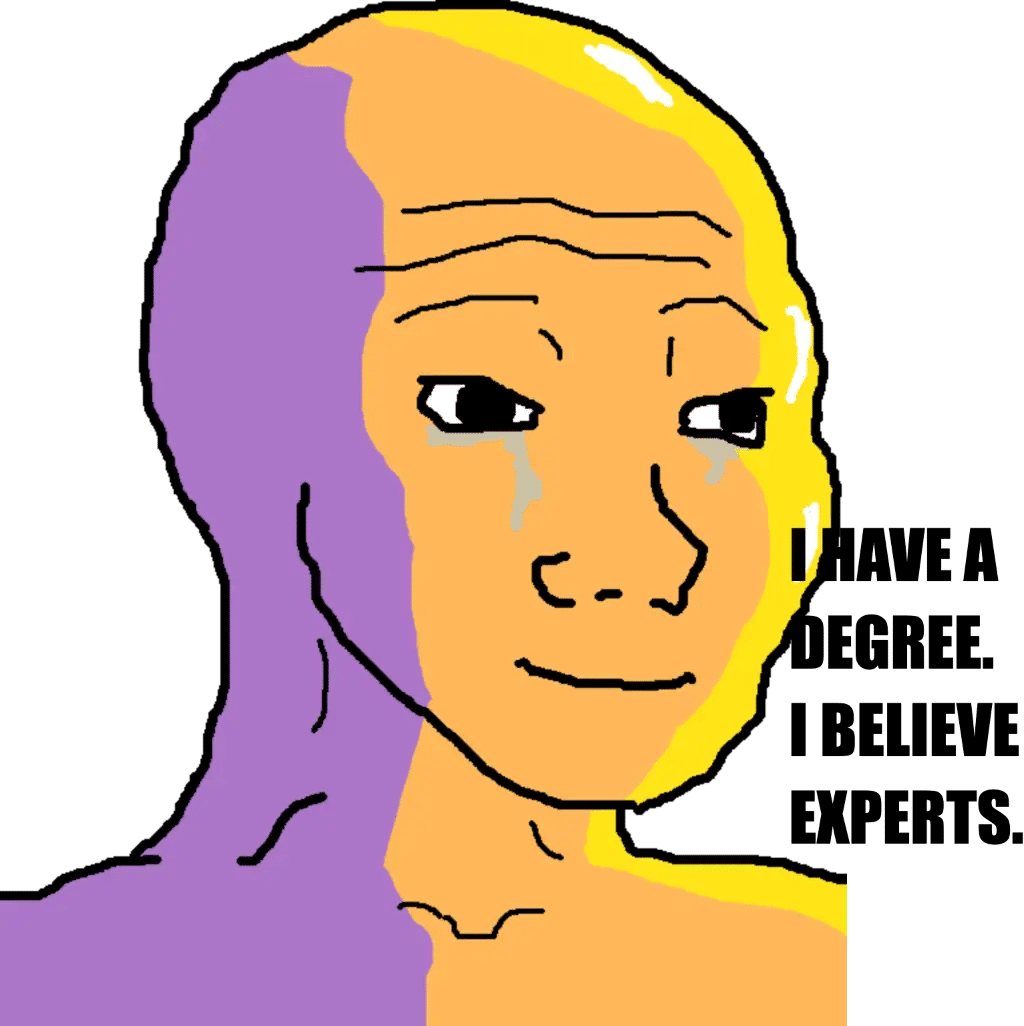

Universal Education Caused Managerialism
by William M Briggs | May 30, 2024
In a review of Auron MacIntyre’s Total State: How Liberal Democracies Become Tyrannies, Z-Man said:
[A]nother quibble [about the book] is one it inherits from paleoconservatism and that is it cannot explain why managerialism exists. Burnham noticed that it first appeared in fascist systems. Later writers observed that communism was also good soil for the growth of managerialism. Now we see American-style liberal democracy has also been overtaken by bourgeois managers. This is hardly an accident, but paleos have never produced an explanation for it.
Here is a possible partial explanation for the rise, constancy, and consistency of managerialism, our Expertocracy. I say an explanation and not the explanation. The situation is too complex to ascribe to a singular event. This is only a sketch. I am not in these 1,000 words going to lay out and justify to anyone’s satisfaction why this explanation is certainly one of the reasons for our Expertocracy (blog, Substack).
The explanation it this: universal education, motivated in part by cross-cultural “fact-centered” education, which itself is increasingly propelled by the one agreed upon universal, science education.
A reason for the urning and the justification of universal education is Equality, the idea that all people, or at least all peoples, are “really” the same, except in circumstance, education being one of the ways to level circumstance. That plus in “democracies” the constant cry is for ever more education because of the requirement of voting.
As Burnham taught us, managerialism could not have gained its foothold if the owners of capital did not trust managers. The owners let educated managers run their concerns, and those managers eventually pushed owners aside, aided, of course, by the creation of stock-issuing corporations, which necessarily shunted owners away from centers of power. Those managers were products of (increasing) education: their education is why they were trusted. They were Experts before that became a dirty word. That the word became a curse is because of education, too, as we shall see.
A century ago, German primary education was considered the “best”. It’s not well remembered, but then it was not uncommon for top science journals to be in German (it’s now English, of course). Education also came to Russia in a widespread way after communism began its killing spree. In any case, as all know, communism is a disease of education.
In the United States, Horace Mann, “Father of the Common School“, before the Civil War, arguing from so-called Enlightenment principles, demanded universal education. “Mann was influential in the development of teacher training schools and the earliest attempts to professionalize teaching.”
The came the desultory effects of the mind-rotting John Dewey. See if this sounds familiar:
Dewey’s philosophy points out that the strict authoritarian approach of traditional education was overly concerned with delivering preordained knowledge, and not focused enough on students’ actual learning experiences…
Dewey (1938) defines progressive education as an educational system that focuses on the learner’s interests and impulse without constraint from the educator.
Dewey, who brought the welcome news that hard work was no longer required, and that everybody could be educated, was embraced with passion.
Normal schools, as teacher colleges were also known, gradually merged with aristocratic universities, which themselves were already fading in quality (and camaraderie, which was just as important as the material taught) as they increased in generality because of increasing matriculation. That increase was driven partly because of Equality and partly because of science.
The need for math and science training increased for all the obvious reasons. Material taught became global: an electron acts the same in the United States as in Russia. Calculus is calculus in whichever culture you reside. Because of its prestige, more and more subjects became a “science”, even management principles, even stacking library books!, and all increasingly became uniform with this expansion.
Recall the strict uniformity required by science was not a feature of aristocratic colleges, which were much more localized and this-culture driven (by whichever culture was local). Students in early Nineteenth Century Cambridge read Milton, in Germany Goethe, in China those becoming scholar-officials memorized Confucius. Students now increasingly all pretend to read whatever is the hot fad of the day. There are, though, some cultural boundaries still in place, China being a prime example.
As universities expanded, subject matter became more uniform. Professors graduating from one school would go to another and teach the same material they had learned. The profession of teaching was becoming global; teachers crossed borders, especially in the sciences. Local culture became less important, and the Global Consensus material more important. Accreditation cannot be ignored, which was another force driving uniformity. Students moved, and had to transfer schools. That too limited departures from uniformity.
From about a century ago, and rapidly accelerating after the second world war, professionalism took over. There is now a journal for everything, with global organization, meetings, and so forth. This creates more uniformity. Science led the way here, and is still in the lead.
Scientists in their early training are forced to undergo the same rituals in education as non-scientists, and so they can’t escape entirely the effects of mandated lessons, which are increasing anti-Reality. The claim is that these requirements makes them “well rounded.” Meaning all the sharp edges have been planed off, leaving them more uniform in appearance.
It is now so common it is difficult to recall there was a time in which a college education wasn’t seen as a necessity. Good people have “degrees”, bad people don’t. In what subject the “degrees” are issued doesn’t really matter. Because there is no test against Reality in non-sciences, and the loosening of the anchors to Culture, it means there isn’t a quantitative way to judge the success of non-science programs except by counting numbers of “degrees”.
It is not that products of the system have not learned anything, or have not acquired some useful skills. But it does mean that once cable to cultural anchors were cut, the educational boat was subject to the whims of the winds of politics. These were global storms. This all meant that good ideas as well as bad ones could take hold. Bad ones won out. Or, really, it was bad all along, because of the impetus and now enforced doctrine of Equality.
Marry that to the curse of global education and its resulting professionalism and we have our current problems.
Pick a field, say, medicine. If we really did have true Experts running medical practice, people who did their best in trying to understand the causes of disease and the causes of cures—these people are the top doctors we can imagine, now—should we hand over all medical decisions to them?
No. Of course not. If the covid panic taught you nothing else, it ought to have taught you this. The cause and cure of disease are only the small, technical aspects of health. The person is greater than his disease, and peoples superior to plagues. Health and its departures are, in short, cultural matters. A one-sized-fits-all model for the cause of a disease might even be the right one. But that never implies there is a one-size-fits-all treatment.
This will be almost impossible to understand, especially if you are in the profession, if you are now an Expert. Think of all the years of education you endured, and here comes some no-name internet fool who says he will not take your drug. Such insolence! Such temerity! It ought not be allowed!
And, of course, we do not now have those ideal doctors. We have instead those produced by DIE-driven education. The same is true for every field, each profession. Our Experts are not all we would wish them to be.
If all this is right, then a partial solution to the Expertocracy and removing the sting of managerialism is the removal of universal education. But that doesn’t seem possible until a silver crucifix dipped in holy water is set on fire and slammed into the satanic heart of Equality.
Subscribe to Science is Not the Answer






0 Comments